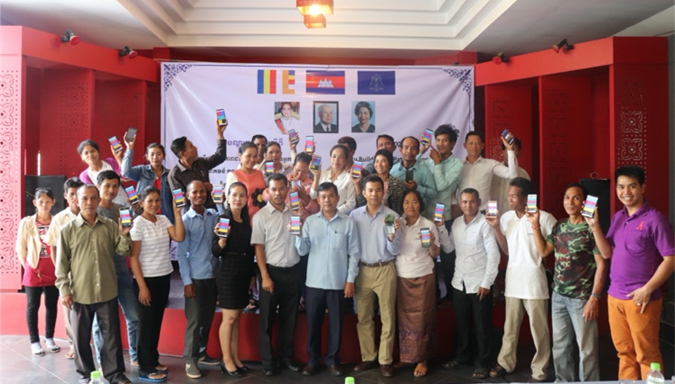KHANA and implementing partners Cambodia Women for Peach and Development (CWPD) and Men’s Health Cambodia (MHC) have continued to implement the HIV prevention programs among Key Populations (FEW, MSM, and TG) in Southern Zone with 8 provinces including Phnom Penh, Kandal, Kampong Speu, Sihanouk Ville, Koh Kong, Prey Veng, Kampong Cham and Tbaung Khmum. Actually, CWP D covered 18,578 Female Entertainment Workers (FEW) in 7 provinces and municipality including Phnom Penh, Kandal, Kampong Speu, Sihanouk Ville, Koh Kong, Prey Veng, and Kampong Cham with 13 operational districts. MHC is responsible for 8,524 Men who have sex with men (MSM) and 1,759 Transgender people (TG) in 7 provinces and municipality including Phnom Penh. Kandal, Kampong Speu, Sihanouk Ville, Prey Veng, Kampong Cham and Tbong Khmum with 18 operational districts for MSM and 13 operational districts for TG.
មជ្ឈមណ្ឌលស្រាវជ្រាវសុខភាពប្រជាជនអង្គការខាណា (KHANA-CPHR) នឹងធ្វើការសិក្សាបែបរុករក អំពីការប្រើប្រាស់ថ្នាំញៀនក្នុង គោលបំណងផ្លូវភេទ អាកប្បកិរិយាប្រឈមជំងឺអេដស៍ និងការទទួលបានសេវាសម្រាប់បុរសរួមភេទជាមួយបុរស និងបុរសប្លែងភេទជាស្ត្រី នៅរាជធានីភ្នំពេញ ប្រទេសកម្ពុជា ដោយធ្វើការសម្ភាសន៍បែបគុណភាពវិស័យស៊ីជម្រៅ (IDI) និងផ្ដល់កម្រងសំណួរបរិមាណវិស័យ ជូនទៅអ្នកចូលរួមទាំងអស់គ្នា ដើម្បីបំពេញតាមវេទិកាអេឡិចត្រូនិក។ មជ្ឈមណ្ឌលស្រាវជ្រាវសុខភាពប្រជាជនអង្គការខាណា (KHANA-CPHR) ត្រូវការជ្រើសរើសអ្នកសម្ភាសសហគមន៍ ចំនួន ៤រូប (អ្នកសម្ភាសភេទប្រុស ត្រូវបានលើកទឹកចិត្តអោយចូលរួម) ដើម្បីចុះប្រមូលទិន្នន័យ នៅតាមតំបន់នៃការសិក្សា។ ការប្រមូលទិន្នន័យនឹងចាប់ផ្ដើមពីថ្ងៃទី ១០ ខែសីហា ឆ្នាំ ២០២២ រហូតដល់ថ្ងៃទី៣០ ខែកញ្ញា ឆ្នាំ២០២២។
ពោះ តួនាទី ភារកិច្ច គុណសម្បត្តិ និងបទពិសោធន៍ សូមពិនិត្យខាងក្រោម៖
តួនាទី៖ អ្នកសម្ភាសសហគមន៍ (០៤ រូប)
ទីតាំងប្រមូលទិន្នន័យ និងរយៈពេល៖ រាជធានីភ្នំពេញ (០២ខែ)
តួនាទី និងភារកិច្ច៖
- ចូលរួមវគ្គបណ្ដុះបណ្ដាល
- សម្របសម្រួលដំណើរការសិក្សា ដោយសហការណ៍ជាមួយបុគ្គលិកអង្គការដៃគូ និងក្រុមធ្វើការស្រាវជ្រាវ
- រក្សាការសម្ងាត់នៃព័ត៌មានដែលបានមកពីការស្ទង់មតិ
- ទំនាក់ទំនង អ្នកចូលរួមដើម្បីធ្វើការសម្ភាសន៍
- អាចធ្វើការសម្ភាសន៍បែបគុណភាពវិស័យស៊ីជម្រៅ (IDI)
- អាចកត់ត្រាជាភាសាខ្មែរ (ភាសាអង់គ្លេសកាន់តែប្រសើរ) ក្នុងពេលសម្ភាសន៍
- ថែរក្សាសម្ភាររបស់អង្គការខាណា និងសុវត្ថិភាពផ្ទាល់ខ្លួន
- បំពេញការងារផ្សេងទៀតតាមតម្រូវការរបស់អ្នកគ្រប់គ្រងទាក់ទងនឹងការសិក្សា
គុណសម្បត្តិ និងបទពិសោធន៍
- អ្នកសម្ភាសភេទប្រុសត្រូវបានលើកទឹកចិត្ត
- បទពិសោធន៍ក្នុងធ្វើការសម្ភាសន៍បែបគុណភាពវិស័យស៊ីជម្រៅ
- ជំនាញក្នុងការកត់ត្រាសង្ខេបពេលធ្វើបទសម្ភាសន៍
- ប្តេជ្ញាចិត្តខ្ពស់ក្នុងការបំពេញការងារ
- ចំណេះដឹងអំពីសុខភាព ជាពិសេសទាក់ទងនឹងមេរោគអេដស៍ និងមានសមត្ថភាពក្នុងការអនុវត្តជ្រុងយេនឌ័រ (gender lens) ចំពោះបញ្ហាសុខភាព
- សមត្ថភាពក្នុងការធ្វើការដោយឯករាជ្យ និងជាក្រុម
- សមត្ថភាពទទួលចំណេះដឹងថ្មីៗបានលឿន
- ទំនាក់ទំនងល្អ និងជំនាញអន្តរបុគ្គល
- គ្រប់គ្រងពេលវេលាបានល្អ និងមានឆន្ទៈក្នុងការធ្វើការឱ្យទាន់ពេលវេលាកំណត់
- អាចធ្វើការបានច្រើនម៉ោង និងអាចបត់បែនបាន។
- ចេះភាសាខ្មែរ និងអង់គ្លេស (យ៉ាងហោចណាស់ ចំណេះដឹងទាក់ទងនឹងការងារ)
ចំពោះបេក្ខជនដែលមានលក្ខណៈសម្បត្តិគ្រប់គ្រាន់ សូមផ្ញើ CV និង Cover Letter មកកាន់ KHANA-CPHR តាមរយៈអ៊ីម៉ែល hkiry@khana.org.kh ត្រឹមថ្ងៃទី ០៥ ខែសីហា ឆ្នាំ ២០២២។
KHANA Center for Population Health Research (KHANA-CPHR) will conduct an exploratory study on sexualized drug use, HIV risk behavior, and access to services among men who have sex with men and transgender women in Phnom Penh, by conducting In-depth Interview, and self-completed interviews programmed on a tablet with target group. KHANA-CPHR is now recruiting 4 qualified field researchers (Male is preferred) to conduct interviews in the study sites. The data collection is proposed to take place from 10th August to 30th September, 2022.
Roles, responsibilities, qualification and experiences are listed below:
Title: Field Researcher (4 Positions)
Site and Duration: Phnom Penh (2months)
Roles and responsibilities
- Participate in the training session
- Coordinate the study process with local IP’s field staff and the research team.
- Maintain confidentiality of information from the survey
- Contact participants for interview
- Be able to conduct In-depth Interviews
- Be able to take notes in Khmer (English is an advantage) during the interview
- Ensure the safety of KHANA belongings and own safety
- Complete other tasks as required by supervisor related to work
Selection criteria
- Male is preferred
- Strong experience in interviewing in In-depth interview
- Strong expertise in note-taking.
- Strong commitment to fieldwork
- Health/HIV-related knowledge and ability to apply a gender lens to health issues
- Ability to work independently and on a team
- Fast learner and naturally inquisitive
- Good communication and interpersonal skills
- Good time management and willingness to challenge deadlines
- Able to work long and flexible hours
- Proficient in Khmer and English (at least working knowledge)
Qualified candidate, please send your CV and Cover letter to KHANA-CPHR via e-mail: hkiry@khana.org.kh by 05th August 2022.
]]>No. of pages: 18
Publication date: 2006
Publisher: KHANA
Available languages: English
At the time of the study, illicit drug use had only been recently recognized by the Cambodian government as having the potential to accelerate the HIV epidemic in Cambodia. Responses to this issue had been focused, at best, on arresting dealers and sending users to military style camps for rehabilitation. The study aimed to identify the most vulnerable people at risk to HIV related to drug use. Participatory approaches were used to generate qualitative information. Results showed relatively high levels of drug use within certain populations including out of school youth and sex workers. These groups already have a high HIV risk which is therefore compounded by the use of behavior changing drugs such as amphetamine type stimulants. The study recommends that drug related programs need to fully understand the personal and social factors that lead to drug use. A lack of services relating to drug use was found and therefore improvements to services and information availability and community involvement are needed.
]]>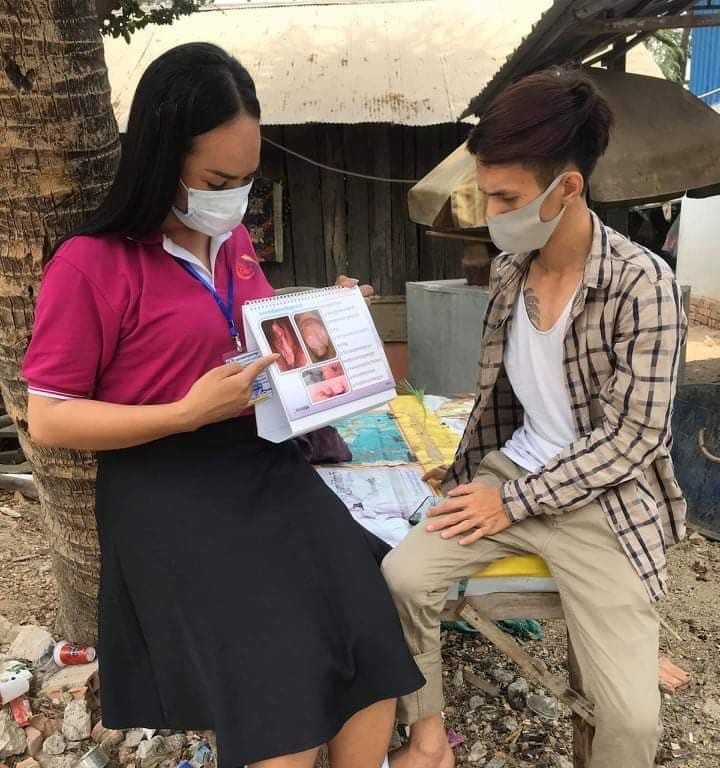
1. GFATM funded HIV Prevention Program targeting Key Populations (MSM, FEWs and TG)
2. Harm Reduction Advocacy in Asia (HRAsia)
The Global Fund’s Harm Reduction Advocacy in Asia grant 20 17 – 2019 (HRAsia) is based on learning from the earlier national programme. Since 2017, the regional grant focuses on advocacy to achieve the long-term sustainability of harm reduction interventions in line with the 90-90-90 targets in seven high priority countries of Asia through our country partners in Cambodia, India, Indonesia, Nepal, Philippines, Thailand and Vietnam. KHANA under the funding support from the Global Fund through India HIV/AIDS Alliance is implementing the Harm Reduction Advocacy in Asia (HRAsia) by strengthening the community system, removing legal barriers to access, health information system and M&E and program management.
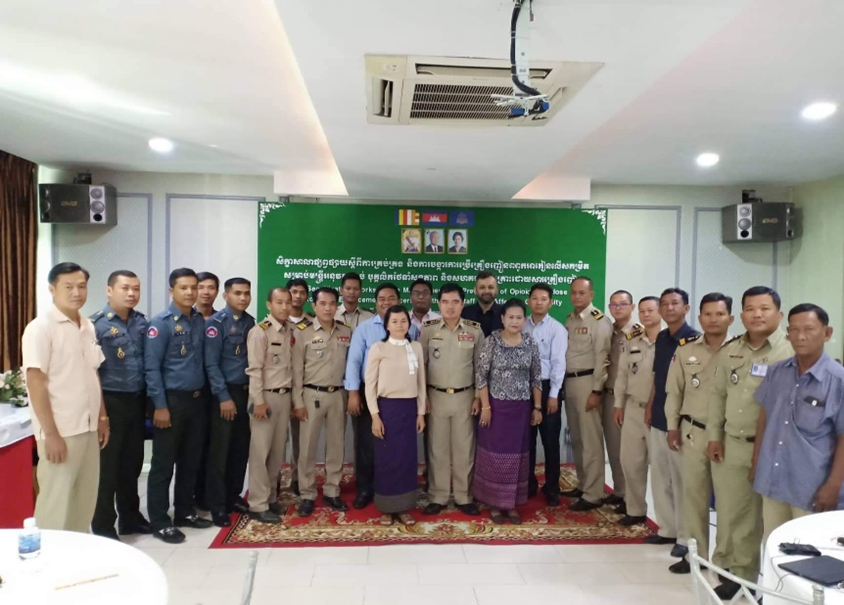
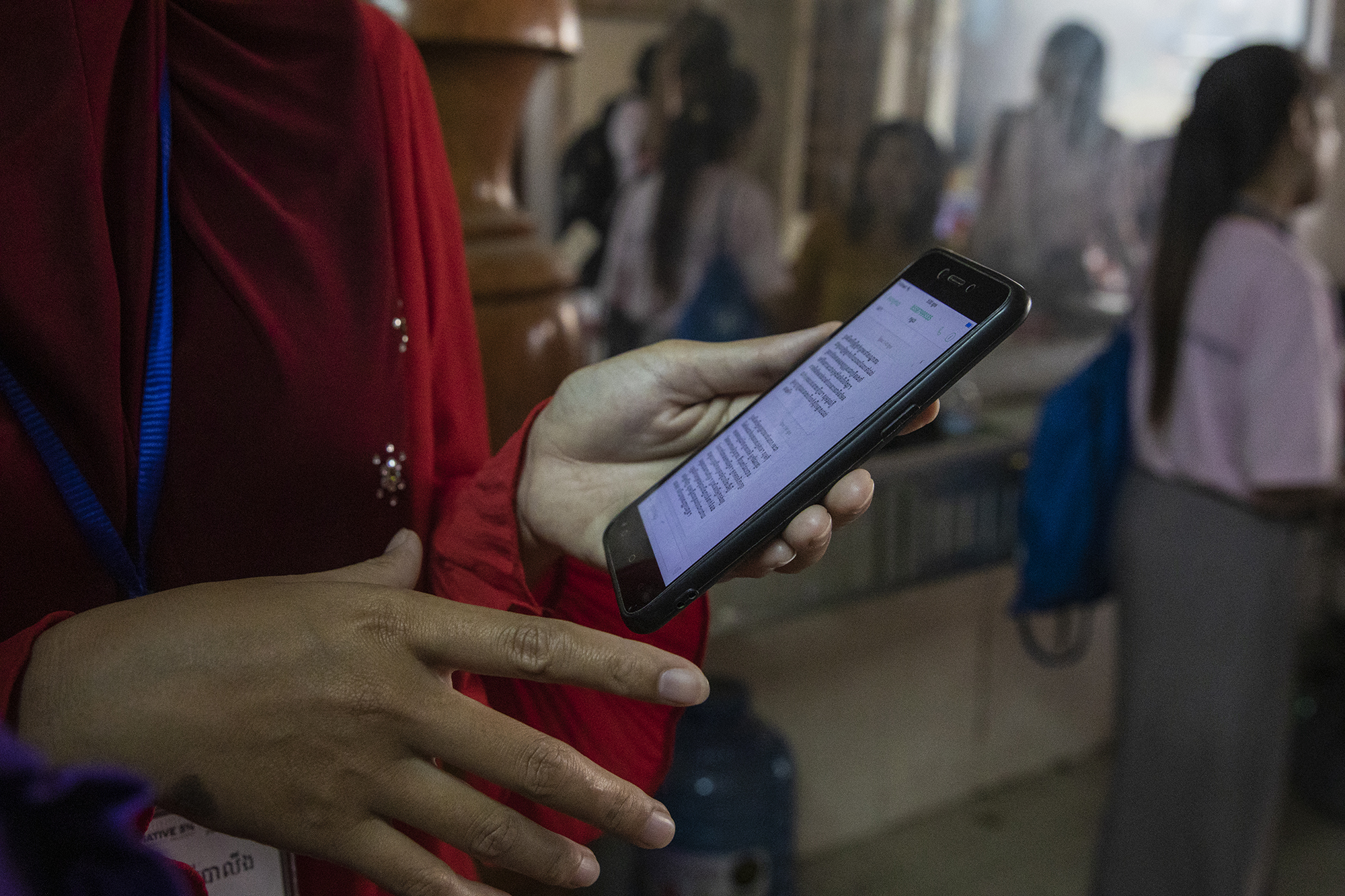
3. Mobile Links Project – French 5% Initiative
In Cambodia, HIV prevalence is concentrated in key populations including among female entertainment workers (FEWs) who may engage in direct or indirect sex work. Reaching FEWs with sexual and reproductive health (SRH) services has been difficult because of their hidden and stigmatized nature. Mobile-phone-based interventions may be an effective way to reach this population and connect them with the existing services. Implementation of a randomized controlled trial (RCT) of a mobile health intervention (the Mobile Link) aiming to improve SRH and related outcomes among FEWs in Cambodia.
4. TB Reach – SAHACA Project – Active Case Finding (Stop TB)
This project is titled ‘SAHACA’ which stands for Sustaining Anti-Tuberculosis and Health Action in Cambodia. The sound of acronym ‘SAHACA’ in Khmer means ‘collaborate’ in English. Thus, SAHACA reflects a mandate of promoting friendly and quality TB service provision with engagement from local health authority, key members in community including the religious groups, people living with TB (PLTB), people affected by TB (PATB), and local authority, which includes participatory design, implementation and monitoring. The project aims to apply the Khmer proverb ‘scratch where it itches’ by promoting people who are living with and affected by TB to play critical leadership roles in TB response by identifying problems and needs and proposing for solutions. The core principle of this project is to engage with District-level Networks of People living with and Experiencing TB (DNPET). he ultimate goal of the project aims at building strong and functional DNPET. These community champions will become the backbone of the project to reflect the needs of the community and provide project design and running with a community perspective. This Peer-Based response has proven to be effective in mobilising the community and encourage accessing TB services, therefore, no-one is left behind.
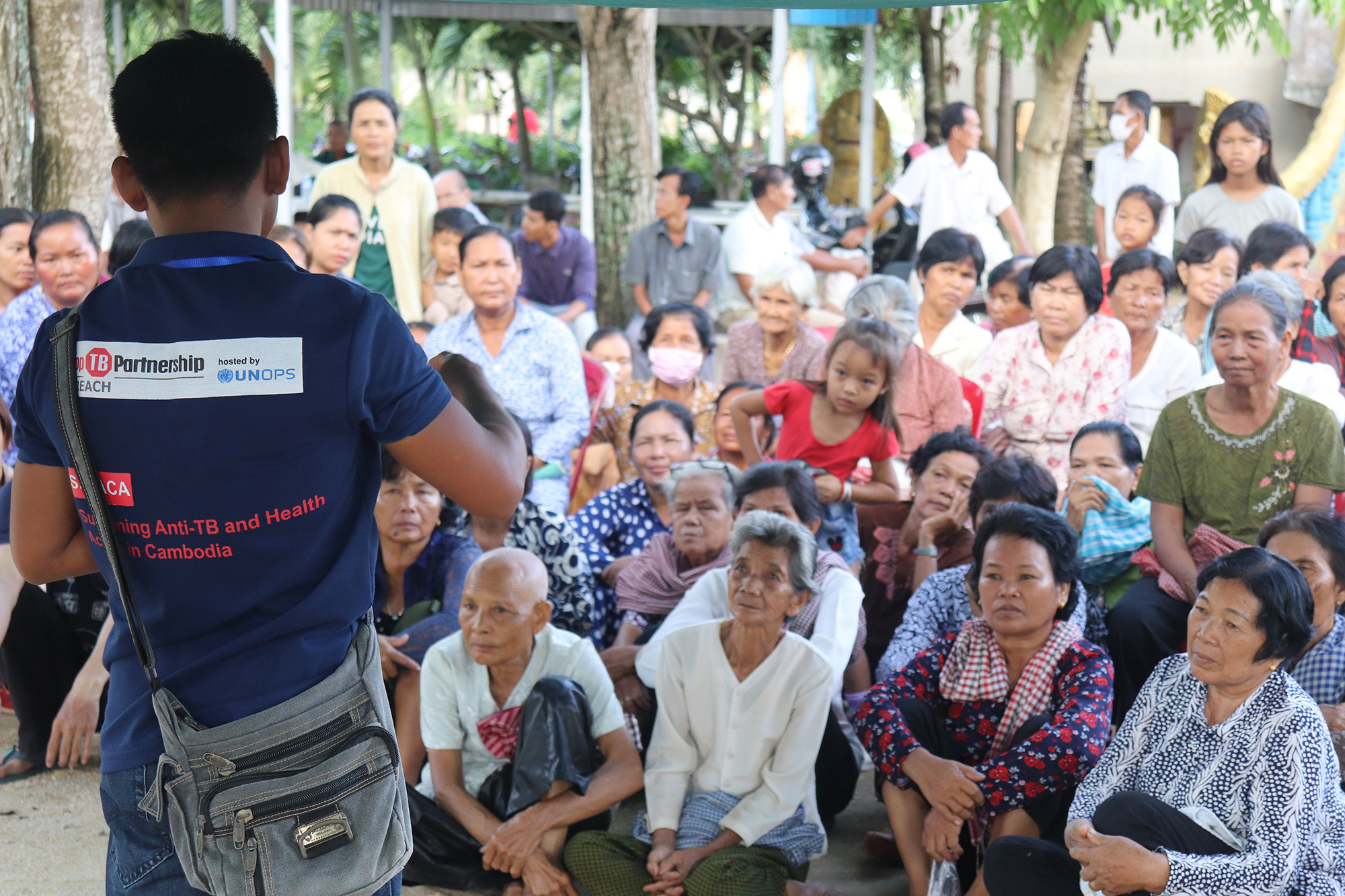
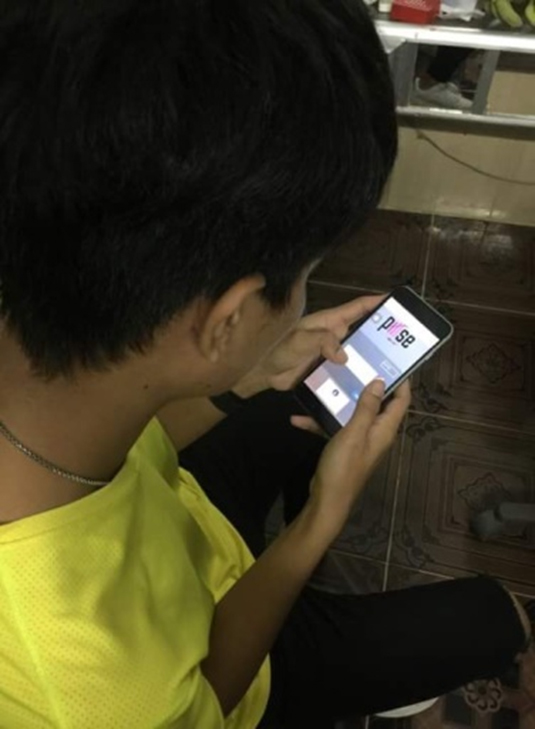
5. The Pulse Operational Survey Project – APCOM/French 5% Initiative
PULSE is the online survey project funded by 5% initiative targeting young MSM who aged between 15-24 years in Mekong Sub-Region by emphasizing the specific issues such as sexual health, stigma and discrimination, and sexual orientation and gender identity and expression. Through the first launch of PULSE survey in 2018, KHANA reached out 767 young people who officially completed the survey. All of them are young MSM who indicatively aged between 15 to 24 years old. The first wave of this online survey was implemented from March to May 2018 in 9 provinces where are the high burden of HIV prevalence among MSM and TG including Phnom Penh, Battambang, Banteay Meanchey, Siem Reap, Kandal, Kampong Thom, Prey Veng, Kampong Cham and Preah Sihanouk. In order to reach up those young MSM people, KHANA used creatively promotion both online and offline to ensure the survey was reached out a huge number of young MSM community.
6. Challenge Facility for Civil Society (CFCS) – Stop TB
Challenge Facility for Civil Society Project is a small grant funded by the Stop TB Partnership (STP) which aimed to create a platform for people have TB and TB survivors to take parts in TB responses at both community and national level. Through CFCS project, KHANA has supported to establish the peer support groups (PSG) and a district network of people living with and experienced TB (DNPET) in order to strengthen the roles of community and key stakeholders in TB response. In addition, KHANA has worked closely with local authorities and religious pagodas to support the charity boxes development and placement at pagodas and tourist paces. The charity boxes is initiated to salvage people living with and experienced TB who faced the issues or needs around accessing to health and other social support services.
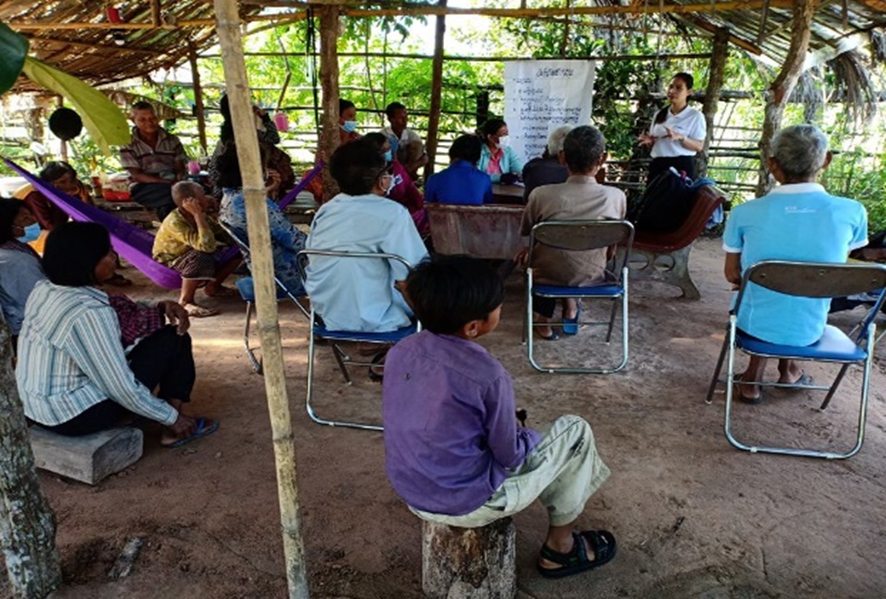
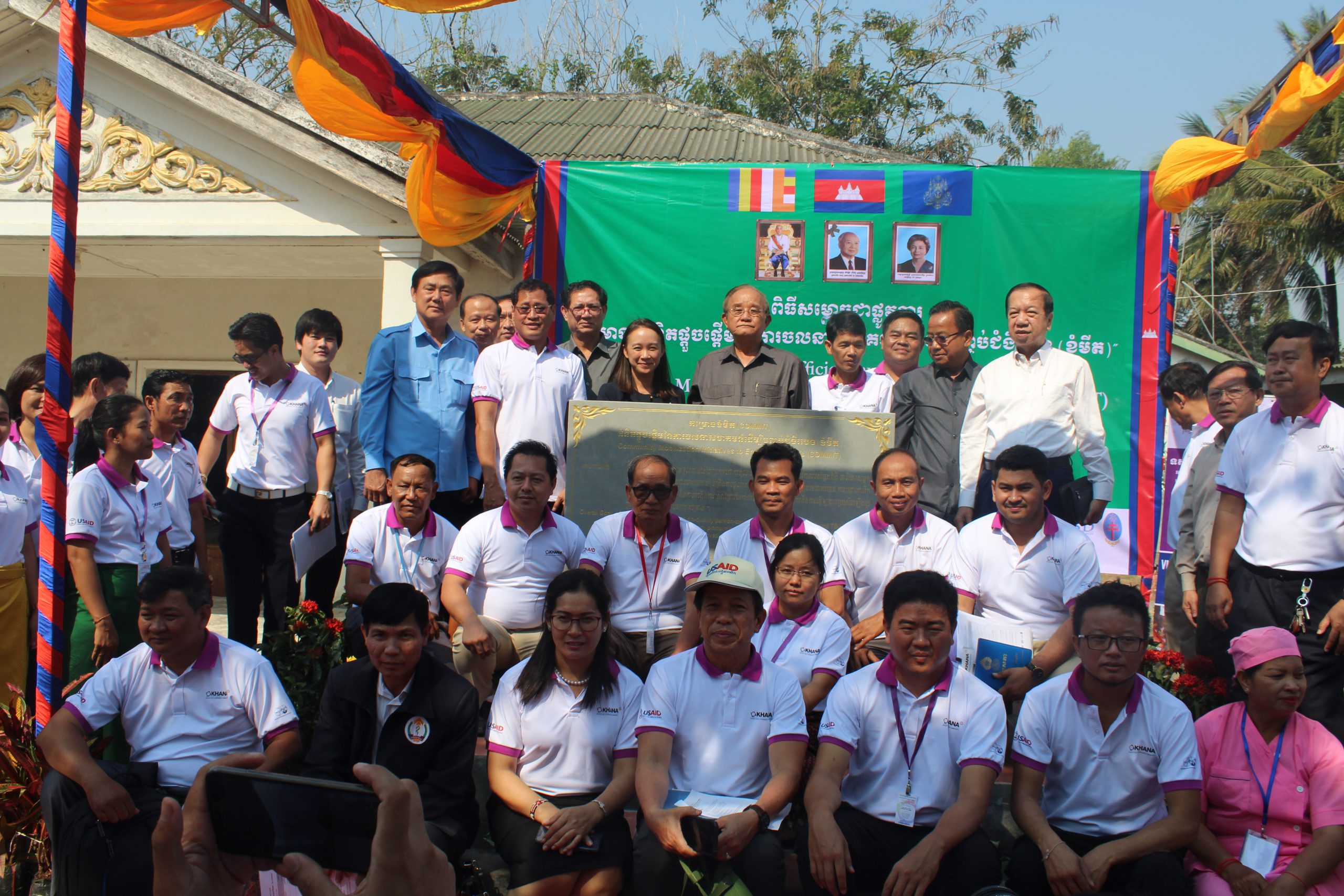
7. COMMIT-USAID TB-LON
Community Mobilization Initiatives to End Tuberculosis (COMMIT), a five-year project led by KHANA in partnership with Cambodian Health Committee (CHC), and Center for Health and Social Development (HSD) aims to address early tuberculosis (TB) diagnosis, treatment and prevention, addressing stigma and discrimination, using responses tailored to high risk populations and communities in Cambodia. COMMIT is a program jointly developed by USAID, KHANA, CHC, and HSD and aims to improve access to high-quality, person-centered TB, drug resistant-TB, and TB/HIV services, strengthen TB service delivery platforms, reduce TB disease transmission and progression, and accelerate TB research and innovations with improved impact on program implementation.
To END TB, COMMIT seeks to undertake a multi-sectoral approach using locally generated solutions to improve early TB case finding, linkage to diagnosis and treatment support, prevent TB prevention and enhance community engagements in Cambodia. The partners will support the development, implementation, monitoring, and evaluation of the program. COMMIT’s innovative approaches that are effective and sustainable will facilitate scale-up and continuation in the future.
8. OneImpactK+:
In 2018, KHANA started to implement the Community-Based Monitoring (CBM) through fostering the community engagement and empowerment for TB response. OneImpactK+ is the digital solution to promote community monitoring, participation and accountability in TB response. The program has been providing a safe space to people living with TB and being active on treatment and TB contact persons to access TB information, nearby TB services, get connected each other among their peers and friends who have TB, and raise or report their issues through OneImpactK+ application. The OneImpactK+ is also to strength the roles of TB community, peer support group leaders and TB networks in association to drug side effects, access to TB services, quality of TB services, stigma and discrimination, and treatment continuation. KHANA organized two trainings to executive committee of district network of people living with and experienced TB and peer support group leaders to use the app properly and how to respond the cases that being raised by TB community members.
